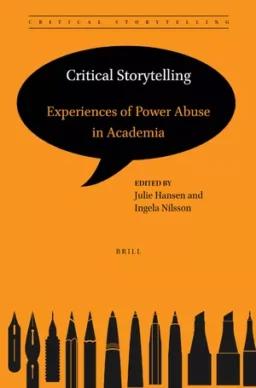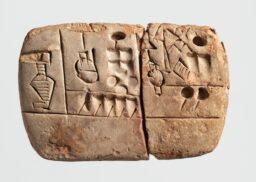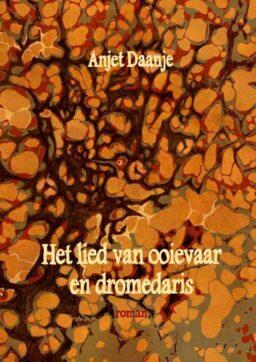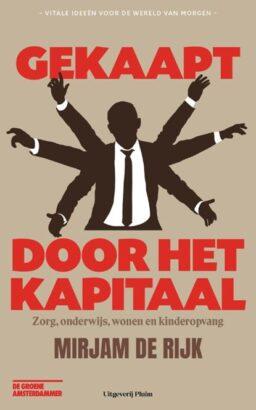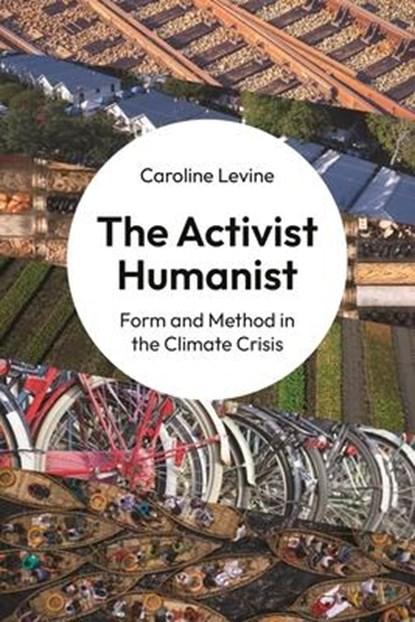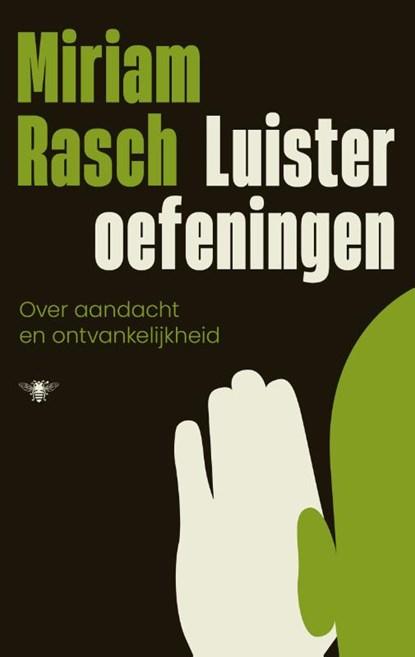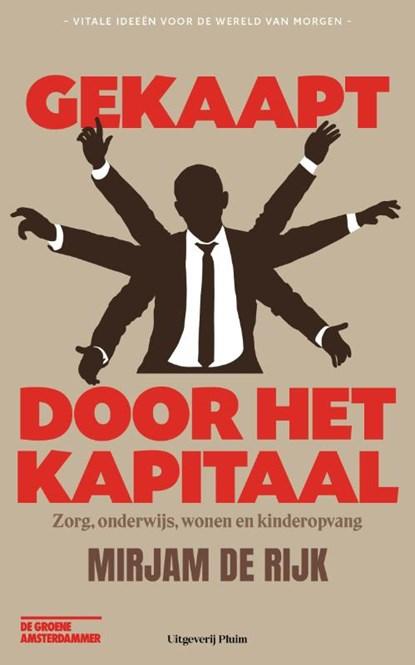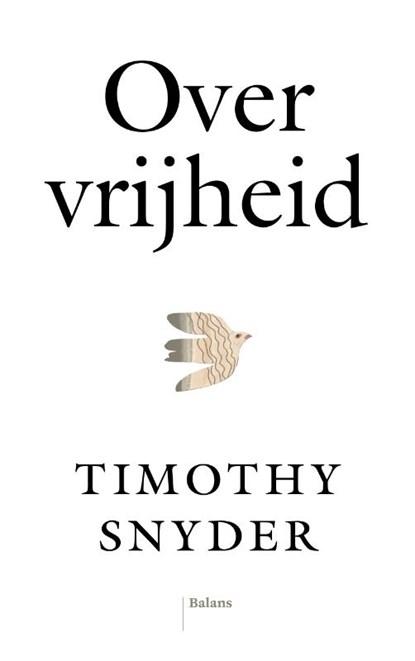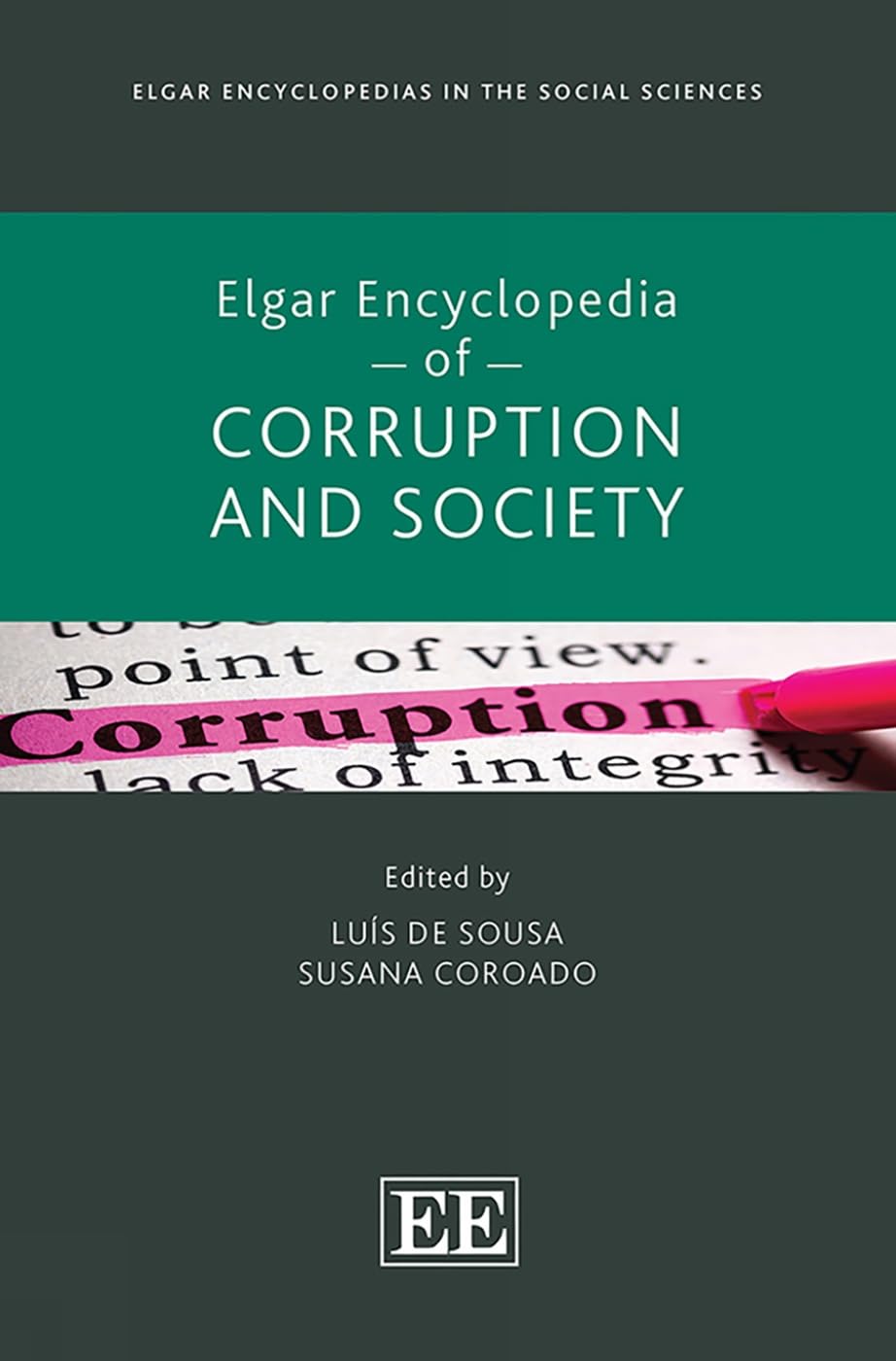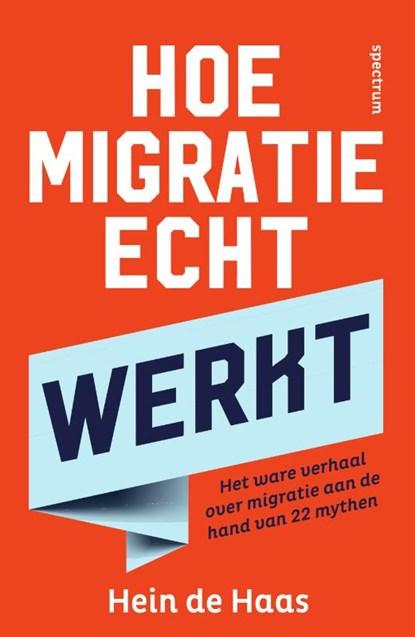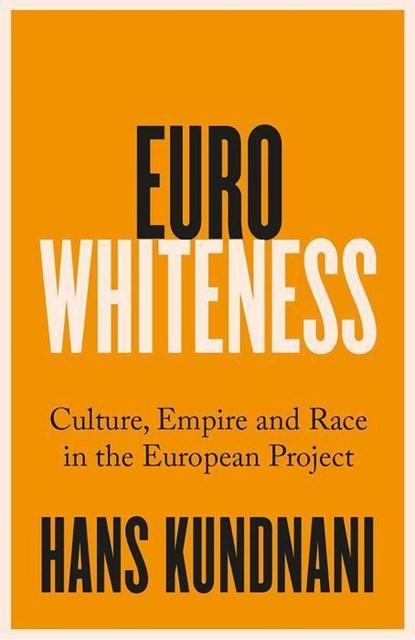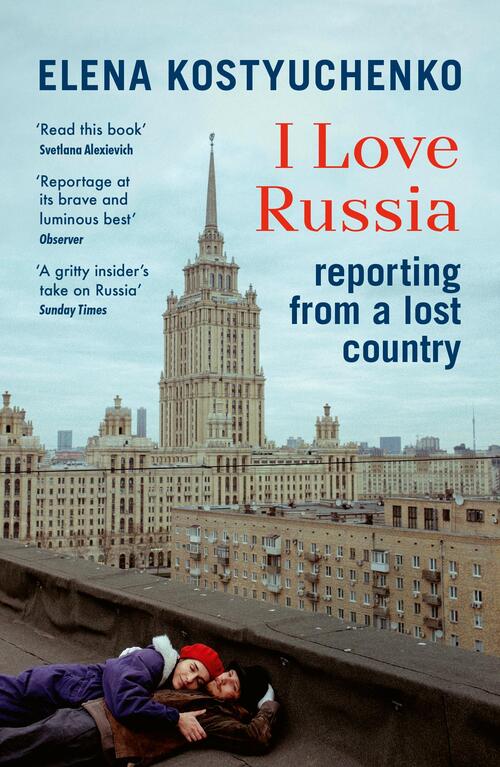Antisemitisme, anti-Palestijns racisme en Europa: pleidooi voor een kritisch en democratisch debat
Socioloog Hilla Dayan en politiek filosoof Yolande Jansen betogen dat Europa uit de ingebeelde rol van ‘omstander’ moet komen, wil een constructieve kritiek op Israël mogelijk worden. De onderdrukking van de Palestijnen door de Israëlische staat hangt volgens hen nauw samen met de huidige Europese politiek, de Europese nationalistische verbeelding en de koloniale geschiedenis. De veronachtzaming van deze invloed levert een historisch en politiek vacuüm op waarin problematische antisemitismedefinities effectieve kritiek uitsluiten, juist op het moment dat die harder nodig is dan ooit.
(An English translation of this text may be found here)
In Europese media en politiek worden de EU en individuele Europese landen vaak voorgesteld als omstanders van ‘het Israëlisch-Palestijns conflict’. Soms wordt Europa daarbij neergezet als een neutrale omstander die ‘het vredesproces’ faciliteert, soms als een zich met Israël engagerende, bijna noodzakelijk partijdig vanwege de historische schuld aan de Joden door de Holocaust en de geschiedenis van het Europese antisemitisme. Europa en de EU zijn echter geen omstanders, maar zowel historisch als in het heden volkomen verweven met de situatie in Israël-Palestina. Hoe we antisemitisme begrijpen en bestrijden in Europa staat daar niet los van. Waar verscheidene organisaties de noodklok luiden vanwege toenemend antisemitisme in Europa, en er bijvoorbeeld in Nederland om die reden een nationaal coördinator antisemitismebestrijding (NCAB) is aangesteld, is het van belang om de politieke en historische context van het debat over de definitie van antisemitisme erbij te betrekken. Daarbij is niet alleen het historische en hedendaagse antisemitisme in Europa relevant, maar ook de situatie in Israël-Palestina en hoe Europa zich daartoe verhoudt.
Wat we wel en niet beschouwen als ‘antisemitisme’ impliceert in de huidige context niet alleen een zorg om de situatie van Joden in Europa (en wereldwijd), maar ook een politieke positionering ten aanzien van de staat Israël. Mensen die kritiek op Israël hebben, wordt regelmatig antisemitisme aangewreven. Met name Palestijnse critici, maar ook anderen, worden hierdoor gemarginaliseerd en gecriminaliseerd. Kritische reflectie op het gebruik van de term is cruciaal voor Joods leven in Europa, juist omdat een duurzaam, moreel verantwoord en politiek legitiem begrip van antisemitisme nodig is voor de bescherming van dat leven. Dit mes snijdt aan twee kanten, want kritische reflectie op het gebruik van de term is evengoed vereist voor het tegengaan van islamofobie en anti-Palestijnse houdingen en praktijken in Europa. Noodzakelijk is het zeker ook vanwege de schaal en ernst van het geweld jegens Palestijnen in Israël en de bezette – inmiddels in de praktijk grotendeels geannexeerde – Palestijnse gebieden.
Als wetenschappers op het gebied van Israël-Palestina en Europese minderheden, en als Nederlands staatsburgers van verschillende achtergrond, voelen we verantwoordelijkheid voor een zorgvuldig beschouwen van het Europese aandeel in deze kwestie. We delen een diepe en persoonlijke interesse in de geschiedenis die Joodse vluchtelingen naar Palestina en later Israël bracht, zowel uit Europa als uit het Midden-Oosten. De levens van deze mensen als inwoners en burgers van de staat Israël maken ook deel uit van de continentale en koloniale geschiedenis van Europa, dat hiervoor een grote verantwoordelijkheid draagt. Voor de historische en actuele analyse daarvan dragen wetenschappers in ons onderzoeksveld mede zorg.
De situatie die na de laatste verkiezingen in Israël is ontstaan, is geen toevallige ontwikkeling, maar de uitkomst van een langdurig proces waarin een structurele juridische, politieke, economische en culturele ongelijkheid tussen Joden en Palestijnen steeds verder is geconsolideerd, zowel binnen Israël als in de bezette Palestijnse gebieden.
Zoals wij in dit essay zullen betogen hangt de brute onderdrukking van de Palestijnen door de Israëlische staat nauw samen met zowel de huidige Europese politiek als met de nationalistische en koloniale politieke geschiedenis en verbeelding waarop dit geweld berust. De huidige Israëlische regering laat van de laatste, zwakke rechten die Palestijnen nog hadden in de ‘natiestaat van het Joodse volk’, niets meer heel. Ons gaat het daarbij vooral om het onderkennen van de Europese imperiale context die aan deze situatie ten grondslag heeft gelegen en de doorwerking daarvan in het heden. De Palestijnen, in zekere zin gevangenen van deze geschiedenis, staan nu nog grotere rampen te wachten dan die waarmee ze al werden geconfronteerd. We willen ook de blik richten op actuele discussies in Europa die getuigen van een problematisch antisemitismebegrip, waarin dit wordt gebruikt om kritiek op de situatie van de Palestijnen bij voorbaat buiten de orde te plaatsen. We doen dit vanuit de overtuiging dat zulk opportunistisch gebruik van het begrip antisemitisme een duurzaam tegengaan van antisemitisme enkel kan schaden – het plaatst Joden terug in de aloude Europese positie waarin ze soms beschermd en opgehemeld en soms vervolgd werden, maar steevast tot ‘anderen’ gemaakt en uitgespeeld tegen andere bevolkingsgroepen. Dit raakt natuurlijk ook de Europese Palestijnen, mensen met een islamitische en/of Arabische achtergrond, evenals andere critici van de situatie, die met politieke en juridische middelen het zwijgen wordt opgelegd, of die in elk geval niet of niet voldoende worden gehoord.
Nationality Law
Aan de huidige coalitie van Netanyahu neemt een aantal onvoorstelbaar extremistische, ultranationalistische partijen en personen deel. Minister van financiën is Bezalel Smotrich van de partij ‘Religieus Zionisme’. Smotrich is een verklaard voorstander van de annexatie van de Westelijke Jordaanoever en de claim dat deze Israël toebehoort op religieuze gronden. Hij is ook ‘trotse homofoob’ en woont in een illegale nederzetting in de bezette gebieden – die hij zo snel mogelijk wil legaliseren. Nog een graad extremer is de extreemrechtse partij ‘Joodse Kracht’ van Itamar Ben-Gvir. Hij is een aanhanger van de in 1990 vermoorde rabbijn Meir Kahane, die de etnische zuivering van de Westelijke Jordaanoever voorstond. Terwijl Kahanes Kach-partij in de vroege jaren negentig nog door andere partijen werd genegeerd en later verboden, versterkte Ben-Gvirs leus ‘het dorp moet branden’ zijn populariteit. Ben-Gvir mocht niet dienen in het Israëlische leger vanwege zijn extreme opvattingen, is in 2007 veroordeeld voor aanzetten tot haat en staat bekend om velerlei extreemrechtse activiteiten. Zijn idool is de terrorist Baruch Goldstein, die in 1994 29 Palestijnen vermoordde en 125 verwondde in Hebron. Net als Smotrich heeft hij openlijk plannen om de Palestijnen uit Oost-Jeruzalem te verdrijven en de Westelijke Jordaanoever te annexeren. Hij is nu minister van binnenlandse veiligheid.
De situatie die na de laatste verkiezingen in Israël is ontstaan, is geen toevallige ontwikkeling, maar de uitkomst van een langdurig proces waarin een structurele juridische, politieke, economische en culturele ongelijkheid tussen Joden en Palestijnen steeds verder is geconsolideerd, zowel binnen Israël als in de bezette Palestijnse gebieden. ‘Israël is niet de staat van al zijn inwoners… maar de natiestaat van het Joodse volk, en van hen alleen’, postte Benjamin Netanyahu in maart 2019 op Twitter. Hij bevestigde de realiteit dat Israël een staat is die al jaren ernstig discrimineert tegen miljoenen Palestijnen, of ze nu in Israël wonen of in de bezette Palestijnse gebieden (en of ze nu Israëlisch burgerschap hebben of niet). De discriminatie van Palestijnen en de voorrang voor Joden werd juridisch geconsolideerd in de Basic Law: Israel as the Nation State of the Jewish People, die in 2018 werd aangenomen.
De verklitting tussen kritiek op Israël en antisemitisme verklaart voor een deel de Europese passiviteit ten aanzien van Israël.
In 2021 en 2022, dus ook al ruim voor het aantreden van de nieuwe regering, verschenen rapporten van zowel Amnesty International als Human Rights Watch over de situatie in Israël-Palestina. Zij kenmerkten de situatie in termen van ‘apartheid’ en ‘vervolging’ volgens het internationaal recht. Ook verschenen er rapporten van Palestijnse en Israëlische mensenrechtenorganisaties – Al-Haq (Defending Human Rights); B’Tselem (Israeli Information Center for Human Rights in the Occupied Territories); Yesh Din (Volunteers for human rights) – die de situatie na uitgebreid onderzoek in detail belichten, Al-Haq het meest diepgaand en secuur. In een VN-rapport van november 2022, opgesteld door de speciale gezant Francesca Albanese, worden de ernstige vormen benoemd die deze schendingen aannemen:
Draconische restricties op de bewegingsvrijheid van Palestijnen binnen en buiten bezet Palestijns gebied; onderdrukking van politieke en maatschappelijke participatie; ontkenning van verblijfsrechten, status en gezinshereniging; onteigening van Palestijns land en eigendom; gedwongen transfers; moorden; wijdverbreide arbitraire arrestaties en aanhoudingen, inclusief van kinderen; de belemmering en afwijzing van humanitaire hulp en samenwerking; ontkenning van eigendomsrechten en toegang tot natuurlijke hulpbronnen; geweld door kolonisten; en gewelddadige onderdrukking van verzet van de bevolking tegen de bezetting. Alles tezamen betekenen deze praktijken een collectieve straf voor de Palestijnse bevolking.
Europa speelt een cruciale rol bij het in stand houden van deze situatie en dreigt de verdere verslechtering op zijn beloop te laten. In NRC (19 oktober 2022) vertelde de voormalige Nederlandse diplomaat Berber van der Woude, die in de zomer van 2019 in de Palestijnse gebieden werd gestationeerd en begin 2022 ontslag nam vanwege haar frustratie over de situatie, hoe aandacht besteden aan de mensenrechtenrapporten daarover ‘niet opportuun’ werd geacht. Ze stelt dat Nederland, net als de meeste andere Europese landen en de EU, medeplichtig is aan het in stand houden van een situatie van apartheid. Dit ondermijnt de Nederlandse en Europese mensenrechtenpolitiek ook in andere contexten, omdat er met twee maten wordt gemeten. Tekenen van verandering na het aantreden van het huidige kabinet Netanyahu zijn er nauwelijks. Een voorbeeld hiervan is het telefoongesprek van premier Rutte met premier Netanyahu, op 11 januari dit jaar, waarin Rutte heeft gesteld dat het nieuwe kabinet de ‘tweestatenoplossing niet in gevaar mag brengen’. Een vrome boodschap, maar volkomen irreëel en daarmee een vrijbrief voor ernstige mensenrechtenschendingen – het tekent de onwil de daadwerkelijke situatie te kennen, of te erkennen. Overigens staat deze Europese houding wel enigszins onder druk, getuige de recente opzegging van de samenwerking door de burgemeester van Barcelona met zusterstad Tel Aviv totdat ‘de Israëlische autoriteiten de systematische schending van de rechten van de Palestijnse bevolking beëindigen, en zich aan het internationaal recht houden’.
Definities van antisemitisme
In de aanloop naar de huidige situatie, waarin de apartheidspolitiek steeds meer voet aan de grond kreeg in Israël, is er groeiende onduidelijkheid ontstaan over de samenhang tussen antisemitisme en ‘kritiek op Israël’. De verklitting tussen kritiek op Israël en antisemitisme verklaart voor een deel de Europese passiviteit ten aanzien van Israël. Europeanen zijn gewend geraakt aan het goede gevoel dat antisemitisme iets is wat ze na de Tweede Wereldoorlog definitief achter zich hebben gelaten. Voor de Europese mainstream zijn het vooral de ‘Anderen’ – moslims, Arabieren, mensen uit het mondiale Zuiden, Oost-Europeanen – die antisemitisch zijn, ‘wij’ niet meer. Cultuurwetenschapper Esther Romeyn analyseerde in 2014 al hoe witte Nederlanders zichzelf vaak tolerantie toeschrijven, en dat zij de ‘lessen van de Holocaust’ hebben geleerd, terwijl aan moslims vaak bij voorbaat een afwijking hiervan wordt toegeschreven. Antisemitisme wordt zo effectief geëxternaliseerd. Ondertussen maken groeiende extreemrechtse groepen gretig van die verwarring gebruik om het eigen traditionele antisemitisme weer op te pakken, of het in pro-Israël-machismo te verhullen.
Om enig houvast te bieden te midden van deze verwarring heeft de IHRA (International Holocaust Remembrance Alliance) in 2016 een door de Israëlische overheid actief gesteunde en bevorderde definitie van antisemitisme voorgesteld die inmiddels inderdaad op veel plaatsen als een beleids- of zelfs juridische definitie wordt gehanteerd. Het CIDI hanteert en bepleit deze definitie, en deze is ook door de Tweede Kamer aangenomen – evenals door de Duitse Bondsdag en het Franse parlement. De Nederlandse vertaling luidt: ‘Antisemitisme is een bepaald beeld (‘a certain perception’) van Joden, dat zich kan uiten als haat tegen Joden. Retorische en fysieke uitingen van antisemitisme worden gericht tegen Joden of niet-Joden en/of hun bezittingen, tegen instellingen van de Joodse Gemeenschap, en religieuze voorzieningen.’
Er is vanuit het wetenschappelijk onderzoek naar antisemitisme aanzienlijke kritiek op deze definitie gekomen. Niet alleen is ze vaag (‘een bepaald beeld’; ‘dat zich kan uiten als haat’). Ze is ook problematisch omdat ze de institutionele en georganiseerde dimensies van het antisemitisme onbenoemd laat en het tot een perceptie en gevoel herleidt. Vooral problematisch zijn echter de voorbeelden van antisemitisme die worden gegeven, waarvan een groot deel kritiek op de staat Israël betreft, ‘die wordt gezien als een Joodse collectiviteit’. Het wordt in het midden gelaten wat dit betekent. Wat betekent het om de staat Israël te zien als ‘een Joodse collectiviteit’ in het licht van de structurele discriminatie van Palestijnen? Wat betekent het als kritiek op die discriminatie als antisemitisme wordt aangemerkt?
Het gebrekkige onderscheid tussen antisemitisme en kritiek op Israël is mede ontstaan door de introductie van het begrip ‘nieuw antisemitisme’ in de jaren zeventig van de twintigste eeuw. De veronderstelling was dat het oude Europese antisemitisme een nieuwe, antizionistische vorm had aangenomen: een overkritische benadering van, en oneigenlijke focus op, de Israëlische staat. Met de definitie van de IHRA in de hand is antizionisme bijna per definitie antisemitisme, en kan aan kritiek op Israël al snel een ‘oneigenlijke focus’ worden toegeschreven zodat ook niet meer op de inhoud van de kritiek hoeft in te worden gegaan. De Britse taalfilosoof Brian Klug betoogde al in 2004 dat de gelijkstelling van antizionisme en antisemitisme problematisch is omdat discriminatie van niet-Joodse bevolkingsgroepen binnen de staat Israël, en in het bijzonder van de Palestijnen, hierdoor onbekritiseerbaar wordt. De verweving van raciale, etnische, nationale, religieuze en staatkundige definities van Joods-zijn, een erfenis van de Europese geschiedenis en in Klugs woorden een ‘verstrikte kluwen’, speelt hierin een belangrijke rol.
In 2020 is een scherpere definitie van antisemitisme geformuleerd in The Jerusalem Declaration on Antisemitism (JDA), als correctie op de IHRA-definitie. Aan deze nieuwe definitie hebben wereldwijd veel van de meest vooraanstaande onderzoekers op het gebied van antisemitisme-onderzoek een bijdrage geleverd, velen met een Joodse achtergrond. In oktober 2022 hebben veel ondertekenaars van de JDA de VN opgeroepen om de definitie van de IHRA niet te hanteren. De JDA stelt dat antisemitisme een vorm van racisme is en dat kritiek op Israël, mits proportioneel en op feiten gebaseerd, niet onder antisemitisme valt, en ook niet het oproepen tot een boycot van Israël vanwege de apartheidspolitiek ten aanzien van de Palestijnen. Dit is belangrijk, omdat dergelijke oproepen in termen van BDS (Boycott, Divestment and Sanctions) in veel Europese landen met antisemitisme worden geassocieerd en bestraft. Zo werd, vanwege haar steun voor BDS, kortgeleden bijvoorbeeld de bekende Britse toneelschrijfster Caryl Churchill haar European Drama Prize (een prestigieuze Duitse toneelprijs) ontnomen. Ook de filosofen Judith Butler en Achille Mbembe, evenals vele kunstenaars en wetenschappers met een (deels) Palestijnse achtergrond, zoals Anna-Esther Younes en Yazan Khalili, zijn op deze wijze van antisemitisme beschuldigd. Vooral voor de Palestijnen onder hen heeft dit grote persoonlijke, professionele en juridische gevolgen gehad.
Wertheim onderzoekt in zijn boek welk beeld verschillende Nederlandse groepen hebben van Joden en constateert dat het eigenlijk in elke groep die hij onderzoekt eerder over een spiegeling van deze groep zelf gaat, dan dat het daadwerkelijk over Joden gaat.
De JDA benadrukt dat antisemitisme zich manifesteert in houdingen of opvattingen ten aanzien van Joden, niet van de staat Israël: ‘Het ontkennen van het recht van Joden om te bestaan en te floreren in de staat Israël, individueel en collectief, als Joden, in overeenstemming met het principe van gelijkheid.’ De uitleg in de JDA verschuift daarmee de aandacht van de staat naar de bevolking, en benadrukt het belang van gelijkheid tussen Joden en niet-Joden binnen Israël-Palestina (en daarbuiten). Kritiek op het etnocratische karakter van de staat Israël valt hiermee niet onder antisemitisme. In de IHRA-definitie daarentegen worden pleidooien voor een andere, rechtvaardiger staatsvorm al snel als antisemitisme gezien: in de IHRA-definitie valt een kritische houding of opvatting ten aanzien van het Joodse karakter van de staat Israël al snel onder antisemitisme.
Ook de JDA-definitie is echter niet onproblematisch. Ze stelt bijvoorbeeld dat kritische uitspraken over Israël ‘op het eerste gezicht’ (‘on the face of it’) niet antisemitisch zijn, maar op waar dan wel de grens ligt tussen oprechte kritiek en de soms wel degelijk aanwezige antisemitische intenties ‘achter’ of ‘onder’ de kritiek wordt verder niet ingegaan. Daarnaast wordt ook in deze definitie de focus op Israël-Palestina niet losgelaten en is er te weinig aandacht voor extreemrechtse, georganiseerde, institutionele en culturele dimensies van het historische en hedendaagse antisemitisme.
Zionisme en Europees kolonialisme
Een cruciaal begrip in deze kluwen is dus ‘zionisme’. Europeanen weten hier vaak niet veel over, behalve dat kritiek erop al snel antisemitisch aanvoelt. Gaat het bij kritiek op ‘zionisme’ over het bestaansrecht van Israël als staat, of als een staat waarin Joden meer rechten hebben dan andere inwoners? Gaat het om een veilige haven voor Joden die na de Holocaust elk vertrouwen in diasporisch leven verloren hadden, of om een typisch product van de Europese nationalistische verbeelding zelf? Wat als dit allebei het geval is? Mede door de vele lagen in de term zionisme kan deze zo eenvoudig de verlammende verbinding vormen tussen ‘kritiek op Israël’ en ‘antisemitisme’.
Zionisme ontstond al ver voor de Tweede Wereldoorlog en werd mede gestimuleerd door de Britten, die Palestina (als deel van de Arabische wereld) gekoloniseerd hadden. Het won verder aan kracht in de context van het Europese antisemitisme en de Holocaust. Echter, de visie die stelt dat het bestaan van een als Joods gedefinieerde staat in Israël (voor 1948 in Palestina) de kern uitmaakt van Joods zijn, is een specifieke keuze binnen een breed spectrum aan Joodse tradities, en zelfs binnen een breder historisch zionisme. Voor de Tweede Wereldoorlog was de grootste Joodse beweging in Oost-Europa de Bund, die zich tegen zionisme verzette. In het Midden-Oosten en Afrika was er tot na 1948 nauwelijks zionisme. Ook tegenwoordig zijn er veel Joodse groepen die zich tegen zionisme verzetten, zowel liberale, reform als conservatieve bewegingen. Ze zijn regelmatig in conflict met de Israëlische staat en verzetten zich bijvoorbeeld tegen de delegitimatie van het leven van Joden buiten Israël in naam van het zionisme. Een schrijnend voorbeeld van zo’n delegitimatie was Netanyahu’s actie om na de Charlie Hebdo-moorden in Parijs Joden op te roepen om ‘Muslim Europe’ te verlaten. Hij bracht daarin de drie meest basale waarden van dit staatszionisme samen: het willen verenigen van alle Joden in Israël, het ontkennen van de legitimiteit van het leven in ballingschap, en het stellen dat een eigen staat een voorwaarde is voor veiligheid en voorspoed voor Joden. De referentie aan ‘Muslim Europe’ illustreert hoe deze retoriek Europese xenofobie voedt en in één klap alle Joden, of ze nu willen of niet, aan Israël verbindt. Netanyahu bevestigde enerzijds het toebehoren van Joden aan de dominante Europese, ‘beschaafde’ maatschappij, maar ondermijnde anderzijds ook actief hun behoren tot Europa. Dit is precies de logica van het zionisme die tegen het belang van Europese minderheden in gaat.
Definities inzetten om een complex en contextgebonden verschijnsel te duiden leidt al snel tot een spel van stereotyperingen en de reductie van ieder perspectief tot een kant: je bent ‘pro-Israël’ of je bent ‘antisemitisch’, een standpunt is ‘zionistisch’ of ‘antizionistisch’.
De historicus Amnon Raz-Krakotzkin werd bekend met zijn analyse van het geïnternaliseerde antisemitisme in het zionisme, vanwege de afwijzing van Joods diasporisch leven. In zijn recente boek schrijft hij over de zestiende-eeuwse stad Safed en in Galilea levende Joodse gemeenschappen, die een spiritueel begrip van ‘Zion’ en ook een bewustzijn van ballingschap hadden, een Mishna-bewustzijn. Ze zetten zich in voor de continuering van Joods leven, maar zagen zichzelf niet als heersers over het land of over andere bevolkingsgroepen. Ze leefden naast en tussen Arabische bewoners en werden als oorspronkelijke bewoners van het land gezien. Deze geschiedenis werd tenietgedaan met de opkomst van het politieke zionisme, dat hand in hand ging met het Europese kolonialisme, vooral dat van de Britten na de Eerste Wereldoorlog. Dit zionisme was sterk geïnspireerd door de Europese koloniale verbeelding en ontwikkelde een letterlijke interpretatie van Zion. De wortels van deze verbeelding, stelt Raz-Krakotzkin, liggen in de protestantse legitimeringen van de Europese veroveringen in de ‘Nieuwe Wereld’, in de Amerika’s, Australië, Nieuw-Zeeland en Zuid-Afrika. Deze veroveringen werden als een terugkeer naar een beloofd land voorgesteld. Safed schetst een alternatief waar Joden deel van de regio uitmaken in plaats van meegesleept te worden in de verbeelding van natiestatelijke soevereiniteit over de ‘natives’, die niet alleen in het geval van Israël leidde tot etnische en culturele zuivering, maar overal waar Europees vestigingskolonialisme plaatsvond. Zo’n alternatieve verbeelding kan niet urgenter zijn dan in deze tijden van ‘Joodse Kracht’.
Van de vele schakeringen van zionisme is de christelijke variant zonder twijfel het nauwst verbonden met deze geschiedenis van de protestantse koloniale verbeelding. Het Christelijk zionisme heeft in de VS een belangrijke rol gespeeld in de meer en meer religieus-politieke invulling van zionisme, en daarmee in de religieuze legitimatie van de bezetting van de Westelijke Jordaanoever. Het is een stroming waar Nederlandse christenen soms ook mee verbonden zijn, zoals David Wertheim bespreekt in Waar gaat het over als het over Joden gaat? Wertheim onderzoekt in zijn boek welk beeld verschillende Nederlandse groepen hebben van Joden en constateert dat het eigenlijk in elke groep die hij onderzoekt eerder over een spiegeling van deze groep zelf gaat, dan dat het daadwerkelijk over Joden gaat. Christelijk zionisten, zoals in Nederland de Stichting ‘Christenen voor Israël’, steunen Israël vanuit een visie op het eigen heil, en de bezetting van de Palestijnse gebieden (‘Samaria en Judea’ of ook het ‘Bijbelse hartland’ genoemd) vanwege de theologische betekenis die zij aan die gebieden geven. De voormalig partijleider van de Christenunie, Gert-Jan Segers, schreef eind november 2022 in het tijdschrift van de stichting, Israël actueel (oplage 78.000), dat hij het ‘altijd weer de kop op stekende antisemitisme ook niet anders [kan] zien dan [als] duivelse pogingen om de wereld van Joden te ontdoen. Het is een omgekeerd godsbewijs.’ Segers was met VVD-minister Yeşilgöz initiatiefnemer van de Nationaal Coördinator Antisemitismebestrijding (NCAB). Op een vraag van Natasja Gibbs over apartheid in Israël tijdens een uitzending van Op1, stelde Segers de staat Israël begin januari 2023 nog ten voorbeeld aan het Midden-Oosten – wat niet hem, maar Gibbs op een kleine mediastorm kwam te staan.
In de hedendaagse Israëlische context worden de termen ‘zionisme’ en ‘antizionisme’ veelvuldig gebruikt en is hun onderscheid min of meer duidelijk: zionisme bevestigt de dominantie van Joden in Israël en het Joodse karakter van de Israëlische staat; antizionisme betekent de erkenning van verantwoordelijkheid voor de onteigening en verdrijving van de Palestijnen (de Nakba) in 1948, verzet tegen de bezetting van de Westelijke Jordaanoever en tegen de praktijk waarin de Joden in Israël en de bezette Palestijnse gebieden boven de andere inwoners, en vooral boven de Palestijnen staan. Antizionisme is daarmee ook een positie tegen de discriminerende boodschap en praktijken van Netanyahu en zo vele anderen, die met Ben-Gvir en Smotrich in de regering in de nabije toekomst geweld nog minder zullen schuwen. Het is een kritische positie tegen ongelijkheid, en ze wordt ingenomen door zowel progressieve Israëli’s als Palestijnen.
Het antisemitismebeleid is vaak oppervlakkig en repressief. Het speelt Israëls apartheidsbeleid in de kaart en belast Joden in Europa met een hardnekkige associatie met repressief en onrechtvaardig beleid.
Het is wel de vraag of het helpt, het gebruiken van definities en vooral van indelingen in ‘pro’- en ‘anti’-posities. Definities inzetten om een complex en contextgebonden verschijnsel te duiden leidt al snel tot een spel van stereotyperingen en de reductie van ieder perspectief tot een kant: je bent ‘pro-Israël’ of je bent ‘antisemitisch’, een standpunt is ‘zionistisch’ of ‘antizionistisch’. Historicus van het antisemitisme Arie Dubnov refereerde recentelijk aan een uitspraak van Nietzsche dat ‘alleen dat wat geen geschiedenis heeft gedefinieerd kan worden’. ‘Antizionisme’ is daarbij ook nog eens een enorme versmalling van ‘kritiek op Israël’, want ook die is in vele schakeringen mogelijk. Een kritische visie kan ook de discussie over zionisme zo veel mogelijk willen ontwijken, omdat het uiteindelijk gaat over gelijke rechten en vrijheden voor alle inwoners. De terminologie laat in elk geval zien hoe gepolitiseerd en eenzijdig de discussie is. Elke gedachte impliceert onmiddellijk een positie, of een verborgen positie: antizionisme is antisemitisme. Debat, laat staan dialoog, is in zo’n sfeer niet mogelijk, waardoor onrecht niet benoemd (en daarmee uiteindelijk ook niet gesanctioneerd) kan worden, evenmin als angsten en andere emoties, terwijl juist dat hoognodig is om in Israël-Palestina samen te kunnen leven.
Debatten in Europa
Europa is in hoge mate medeverantwoordelijk voor de situatie in Israël, zowel historisch als door de onvoorwaardelijke hedendaagse steun aan en samenwerking met Israël. Die samenwerking vindt niet alleen plaats op medisch en technologisch gebied, maar ook op het gebied van de veiligheidsindustrie. Over serieus inhoud geven aan de Europese verantwoordelijkheid wordt echter te weinig nagedacht. Het antisemitismebeleid is vaak oppervlakkig en repressief. Het speelt Israëls apartheidsbeleid in de kaart en belast Joden in Europa met een hardnekkige associatie met repressief en onrechtvaardig beleid. Democratische krachten die zich hiertegen verzetten, Palestijnse, Joodse, Israëlische, of welke dan ook, worden niet geholpen maar zelfs actief tegengewerkt. Door de associatie met antisemitisme worden vele in Europa woonachtige deskundige, kritische wetenschappers en kunstenaars, vooral als ze een Joodse, Palestijnse en/of Israëlische achtergrond hebben, maar beperkt gehoord. Als er al ruimte voor hun geluid is, dan blijft die vooral beperkt tot de culturele en wetenschappelijke sfeer en bereikt die de politiek of publieke media niet of nauwelijks. Dat gaat regelmatig gepaard met aanzienlijke druk en zelfs smaad – zoals in 2016, toen CIDI probeerde om een conferentie op de UvA, georganiseerd door gate48, een platform van kritische Israëli’s in Nederland, af te laten gelasten vanwege een vermeend aanzetten tot antisemitisme; of zoals in 2022, toen de van origine Palestijnse antropologe Dina Zbeidy, al jaren verbonden aan de Hogeschool Leiden en gepromoveerd aan de Universiteit van Amsterdam, door de Universiteit Leiden werd geweerd als voorzitter van een debat over de Israëlische politiek.
Hoewel deze dynamiek in alle Europese landen een rol speelt, werd zij de laatste jaren het best zichtbaar in de Duitse context. De Duitse afdeling van Amnesty International heeft Amnesty’s eigen rapport over apartheid na publicatie in 2021 al snel van de website gehaald, en er wordt alleen naar de Engelstalige afdeling verwezen. Op de website valt het volgende te lezen: ‘In de huidige historische nationale context is een objectief, op feiten gebaseerd debat over de classificering gemaakt in dit rapport lastig. Om het gevaar van instrumentalisering of misinterpretatie van het rapport tegen te gaan, zal de Duitse afdeling van Amnesty geen activiteiten plannen of uitvoeren in relatie tot dit rapport.’ De Israëlisch-Brits-Duitse essayist Michael Sappir schrijft dat Amnesty Duitsland natuurlijk voorzichtig moet zijn met het voeden van antisemitische samenzweringsideologieën. Echter, het gevolg is dat zelfs feitelijke kritiek door verantwoorde organisaties onbespreekbaar wordt.
Het bestrijden van antisemitisme, stelt Weizman, gaat over in anti-Palestijns racisme wanneer het een directe aanval inhoudt op de Palestijnse identiteit en geschiedenis.
Toen een van ons aan een Duitse collega voorstelde om Gil Hochbergs boek Becoming Palestine: Toward an Archival Imagination of the Future, uitgegeven in 2021 en winnaar van de prestigieuze Amerikaanse René Wellek-prijs, in Berlijn te introduceren, zei deze dat dat direct tot haar marginalisering en misschien zelfs ontslag zou leiden, en dat zij dit niet op zich kon nemen. Recentelijk ook heeft het Goethe-Institut in Tel Aviv ‘om veiligheidsredenen’ een panel afgeblazen waarbij Duitse en Israëlische wetenschappers, onder wie de bekende historicus Amos Goldberg, zouden praten over herdenkingsculturen met betrekking tot de Holocaust en de Nakba. Deze afzegging kwam tot stand onder druk van enkele Duitse instanties en Yad Vashem.
Ondertussen wordt er gewerkt aan anti-antisemitisme-initiatieven die dit soort ad hoc interventie haast overbodig moeten maken met tech fixes – een vorm van technologisch ‘solutionisme’ dat Europa op afstand plaatst van zowel de situatie in Israël, als van zijn eigen geschiedenis van antisemitisme. Zo werkt de Alfred Landecker Stichting bijvoorbeeld aan een project genaamd Decoding Antisemitism. Ze ontwikkelt een algoritme voor het ‘managen van content’, met als streven om het bestrijden van antisemitisme te automatiseren. Het streven om van een complex ethisch, historisch, politiek en cultureel fenomeen een ‘big data’-project te maken getuigt van een Europese anti-intellectuele en anti-expertisecultuur waarin debat ongewenst is: open en complexe politieke debatten leggen het af tegen de toverstok van het algoritme. Voorspelbaar genoeg heeft het ‘decodeer antisemitisme’-algoritme al partij gekozen voor de IHRA-definitie.
De gebeurtenissen rond documenta 15 in Kassel vorige zomer laten zien hoe niet alleen de Duitse, maar de gehele Europese (en mondiale) culturele wereld inmiddels bij dit probleem betrokken is. Al vanaf januari waren er beschuldigingen van antisemitisme waarover in heel Europa debat ontstond, en de grimmige sfeer hield de hele zomer aan. Begin september werd in Amsterdam door de kunstinstellingen Framer Framed, de Akademie van Kunsten van de KNAW en het Van Abbemuseum een tweedaags symposium georganiseerd: (un)Common Grounds: Reflecting on documenta fifteen. Dit symposium werd als ‘podium voor een antisemitische film’ neergezet in de Telegraaf, en in een verontruste reactie van het CIDI werd er druk uitgeoefend op de organisatoren. De Palestijnse en in Amsterdam aan een promotieonderzoek werkende kunstenaar Yazan Khalili, die het Palestijnse collectief The Question of Funding vertegenwoordigde tijdens documenta 15, sprak tijdens dit symposium over zijn ervaring van ‘negen maanden worden zwartgemaakt’. Khalili vertelde dat iedereen die in Duitsland wordt geassocieerd met de BDS-beweging direct van enige vorm van financiering of facilitering (zoals het beschikbaar maken van vergaderruimtes) is uitgesloten, en dat dit een manier is om in het neoliberale tijdperk de academische en artistieke vrijheid, en de vrijheid van meningsuiting in het algemeen, niet langs juridische maar financiële wegen te beperken.
Een van de deelnemers aan de Framer Framed-bijeenkomst was Benjamin Seroussi, directeur van het Joodse Casa do Povo–collectief in Brazilië. Hij corrigeerde de veelvuldig gemaakte opmerking dat Joodse kunstenaars buiten documenta 15 gehouden waren. Zijn collectief was als één van de voorbeelden van buitengesloten groepen genoemd in de Frankfurter Allgemeine Zeitung. Seroussi vertelde dat dit niet waar was, maar dat de correctie die hij stuurde aan de FAZ eenvoudigweg niet geplaatst werd. Seroussi, wiens collectief de nagedachtenis aan de Holocaust wil dekoloniseren en Joods erfgoed relevant wil maken voor de strijd tegen hedendaags raciaal geweld in de Braziliaanse context, waarschuwde dat deze strategie averechts werkt. Het uitspelen van een vermeend antisemitisch ‘mondiaal Zuiden’ en Joden tegen elkaar, zoals in de Duitse context veelvuldig gebeurde tijdens de debatten over documenta 15, ondermijnt ieder Joods dekoloniaal project en zal niet helpen in de strijd tegen daadwerkelijk antisemitisme.
Om de impasse te doorbreken is het noodzakelijk dat Europese instellingen en politici ophouden zichzelf en de EU neer te zetten als omstander van ‘een conflict’ waar ze buiten staan, en medeverantwoordelijkheid erkennen voor de ontstane situatie, zowel vanwege de vroegtwintigste-eeuwse Britse koloniale rol in Palestina en de Arabische wereld, als vanwege de Jodenvervolging en de Holocaust.
Architect Eyal Weizman, oprichter van het bekende kritische architectencollectief Forensic Architecture, zag de gang van zaken rondom documenta 15 als deel van de oorlog die Israël heeft verklaard aan de ‘delegitimering’ van Israël in het mondiale culturele veld. Die oorlog maakt deel uit van Israëls hasbara-politiek, waarin de situatie in Israël-Palestina op een ‘positieve manier’ in het buitenland wordt uitgelegd. Weizman stelde dat de Israëlische staat Europese instituties en staten onder druk zet om een ‘intellectuele iron dome’ te vormen tegen onwelgevallige kritiek, met inzet van het begrip antisemitisme. Het grote probleem in de Duitse, en breder, de Europese context, stelde Weizman, is de onmogelijke positie van de Palestijnen. Het begin van een erkenning van hun bestaans- en spreekrecht houdt voor veel Europeanen al antisemitisme of ‘Israël-ontkenning’ in. Deze beschuldiging kan je al treffen als je jezelf Palestijn noemt (of dat bent, zoals Dina Zbeidy en Anna Younes) of als je de term ‘Nakba’ gebruikt om het te hebben over de massale verdrijving van de Palestijnen in 1948. Het geldt nog sterker bij kritiek op zionisme of apartheid. Het bestrijden van antisemitisme, stelt Weizman, gaat over in anti-Palestijns racisme wanneer het een directe aanval inhoudt op de Palestijnse identiteit en geschiedenis.
Het Framed Framed-symposium gaf de deelnemers aan documenta 15 de ruimte om hun ervaringen als doelwit van de meest langdurige en uitgebreide ‘nieuw antisemitisme’-campagne in de Duitse geschiedenis te bespreken. Daarmee bood het zicht op verdieping van de artistieke bijdragen van de deelnemers, inzicht in hoe dergelijke campagnes werken en bezinning op de schade die zo werd toegebracht aan het geïnformeerde publieke debat. Dit soort ruimte voor deliberatie en reflectie is in Europa eerder een uitzondering dan de norm, terwijl het informeren van het Europese publiek toch echt op de weg ligt van Europese instellingen en media.
Een onverdedigbare politiek
Om de impasse te doorbreken is het noodzakelijk dat Europese instellingen en politici ophouden zichzelf en de EU neer te zetten als omstander van ‘een conflict’ waar ze buiten staan, en medeverantwoordelijkheid erkennen voor de ontstane situatie, zowel vanwege de vroegtwintigste-eeuwse Britse koloniale rol in Palestina en de Arabische wereld, als vanwege de Jodenvervolging en de Holocaust. Door de Holocaust leek de stichting van een eigen staat voor velen de enige mogelijkheid. Hannah Arendt benoemde in The Origins of Totalitarianism (1951) dat het Europese proces van natiestaatformatie en de verspreiding daarvan tijdens het kolonialisme, voor velen statenloosheid en vluchtelingschap tot gevolg had. De stichting van de staat Israël in 1948 en de verdrijving van de Palestijnen maakte in haar analyse intrinsiek deel uit van dit proces. Door onder ogen te zien dat Europa niet alleen vanwege de Jodenvervolging en de Holocaust, maar ook als koloniale en imperiale macht verantwoordelijkheid draagt, zou de geschiedenis van (en kritiek op) de koloniale staat Israël ingebed kunnen worden in een bredere analyse van hoe de situatie tussen Joden en Palestijnen in Israël nu eigenlijk tot stand is gekomen. Zo zou het accepteren van historische verantwoordelijkheid kunnen bijdragen aan het tegengaan van al te gretige of strategische kritiek op Israël (vanwege antisemitisme en/of (geo)politieke agenda’s), maar tegelijkertijd wel de ernst van de situatie onderkennen, inclusief de erkenning dat er daadwerkelijk van apartheid sprake is. Zo’n historische en actuele rekenschap zou aanzienlijk kunnen bijdragen aan een politieke inzet om – met respect voor de omstandigheden van alle betrokken bevolkingsgroepen – een structurele transformatie te stimuleren.
Stemmen die de perspectieven van alle betrokkenen in een historische context plaatsen, zijn cruciaal. Dat deze stemmen deel kunnen nemen aan het publieke debat is in het belang van iedereen, behalve misschien van diegenen die het begrip antisemitisme nu voor het karretje van hun eigen belangen en etnocratische politiek spannen.
Gevaarlijk is het juist om kritiek op Israël als antisemitisch en ‘gevaarlijk’ af te doen en de Europese betrokkenheid onbesproken te laten. Gevaarlijk omdat de Palestijnse situatie er slechts uitzichtlozer en wanhopiger van zal worden, maar ook omdat het begrip antisemitisme op deze manier moreel en politiek uitgehold raakt en een instrument wordt om onverdedigbare politiek mee te verdedigen. Stemmen die de perspectieven van alle betrokkenen in een historische context plaatsen zijn cruciaal, evenals stemmen die al dekoloniale perspectieven verwoorden – een einde aan de apartheid en een samenleven in een politiek raamwerk dat het principe van gelijkheid respecteert. Dat deze stemmen deel kunnen nemen aan het publieke debat is in het belang van iedereen, behalve misschien van diegenen die het begrip antisemitisme nu voor het karretje van hun eigen belangen en etnocratische politiek spannen.
Dat dit geen spookbeeld is bewijst niet alleen de retoriek van Netanyahu en zijn regering maar inmiddels ook hun controversiële wetgevend en uitvoerend handelen. Maar er is meer, dat zich nog directer tot het voorgaande verhoudt: Haaretz-verslaggevers Gur Megiddo en Omer Ben Jacob toonden onlangs met medewerking van een internationaal samenwerkingsverband van gerenommeerde journalisten aan dat een scala aan Israëlische cyberbedrijven zich in opdracht van klanten over de hele wereld bezighoudt met het zaaien van politieke chaos en het ondermijnen van de democratie. Tenminste één bedrijf deed daarbij actief antisemitische uitlatingen via echte en nepprofielen, en promootte in het belang van klanten antisemitische influencers. Het klinkt als een klassieke antisemitische samenzweringstheorie, maar helaas: dit is volledig onderbouwde en verifieerbare onderzoeksjournalistiek. De trieste waarheid is dat we er in een wereld van ‘fake news’ en ‘fake accounts’ rekening mee moeten houden dat antisemitisme en anti-antisemitisme worden ingezet als politiek gereedschap in propagandaoorlogen, ook op de meest cynische wijze denkbaar.
Naast het historische perspectief is ook een bredere kritiek op de hedendaagse Europese betrokkenheid nodig, één die niet alleen thematiseert waarom maar ook hoe het in de EU tot nu toe is gebleven bij business as usual. Zo is er de in 2021 vernieuwde samenwerking met Israël onder het ambitieuze Horizon Europe-programma van de EU (toaalbudget 95,5 miljard euro). Het programma is bedoeld voor inter-Europese samenwerkingen op industrieel, cultureel en academisch gebied. Ook verscheidene buurlanden van de EU nemen deel, waaronder Israël. De betreffende overeenkomst werd getekend door de regering van Naftali Bennett, de leider van een partij die vestiging van Joodse kolonisten op de Westelijke Jordaanoever voorstaat. Europese voorwaarde voor de samenwerking met Israël was dat er geen investeringen in Israëlische projecten en universiteiten in de bezette Palestijnse gebieden zouden worden gedaan. Hoe hard kan die voorwaarde zijn, onder die Israëlische regering en de huidige? Een meer kritische benadering zou stellen dat de EU zich als een economisch imperium opstelt en, alle mooie morele en politieke retoriek ten spijt, vooral de eigen economische doelen dient: het dwingt een ineffectieve concessie af (geen investeringen in de bezette gebieden) maar legitimeert uiteindelijk vooral Israël, terwijl zonneklaar is dat in de praktijk alle Joodse Israëli’s – dus ook die in de bezette gebieden – van het EU-geld zullen profiteren, zeker onder de huidige regering.
Onze taak als Europeanen is niet alleen om de apartheid te denormaliseren en bekritiseren, maar vooral ook om de EU-politiek en de Europese (en Westerse) rol in het ontstaan en in stand houden van deze situatie te benoemen en verder te onderzoeken.
Als er nu één ‘voordeel’ is aan het openlijke racisme en rechtsextremisme van Ben-Gvir en Smotrich, dan is het wel dat deze Europese houding moeilijk vol te houden blijft. Hoe extremer de Israëlische regering wordt, en hoe meer vestiging, verdrijving, apartheid en vervolging de officiële politiek worden, hoe harder de EU zal moeten werken om de status quo in stand te houden – totdat deze onhoudbaar blijkt. Onze taak als Europeanen is niet alleen om de apartheid te denormaliseren en bekritiseren, maar vooral ook om de EU-politiek en de Europese (en Westerse) rol in het ontstaan en in stand houden van deze situatie te benoemen en verder te onderzoeken. Zich hiervoor inzetten is al met al wel de lichtst mogelijke interpretatie van Europa’s historische verantwoordelijkheid. En toch worden Joden en Palestijnen die in Israël-Palestina samenwerken aan gelijke rechten, in Europa van antisemitisme beschuldigd. Op dit specifieke moment is het urgenter dan ooit om de blik van de retoriek rondom antisemitisme te verplaatsen naar de feitelijke annexatie van de bezette gebieden, de bestaande rechtsongelijkheid binnen Israël en de plannen van de huidige regering. Of de internationale gemeenschap Israël er actief en effectief voor durft te sanctioneren, zoals Michael Lynk, de speciale rapporteur van de VN over de mensenrechten in de sinds 1967 bezette Palestijnse gebieden – na velen voor hem, Palestijnen op de eerste plaats – in 2020 bepleitte; dat is zelfs onder deze extreme omstandigheden de vraag. Dat het rechtvaardig en politiek noodzakelijk is, ook om antisemitisme tegen te gaan, is dat niet.
Antisemitism, anti-Palestinian Racism and Europe: a Plea for a Critical and Democratic Debate
In May 2023, we published an essay in De Nederlandse Boekengids/The Dutch Review of Books about the responsibility of Europe and European institutions towards the situation in Israel and Palestine. This was a few months after the last Netanyahu cabinet took power in January 2023. We wanted to highlight what was at stake in Europe, addressing the complexity of the phenomenon of antisemitism tied to critique of Israel, and the danger of repressing an important democratic debate.
While we had anticipated a further deterioration of the situation in Israel/Palestine, we could not have imagined the level of deterioration brought by the Hamas attacks on 7 October 2023 and the horrendous aftermath in Gaza and Palestine. What follows is English translation of the essay with a few additions, marked in square parentheses, along with an afterword about the politics of anti-antisemitism in the context of the current war in Israel/Palestine.
More on Eurozine
In European media and politics, the EU and individual European countries are often portrayed as bystanders to ‘the Israeli-Palestinian conflict’. But in fact, they are fundamentally enmeshed in the situation in Israel/Palestine, both but historically and in the present. How we understand and oppose antisemitism in Europe is not a separate issue. At a time when various organisations are raising the alarm about growing antisemitism in Europe, and when, for example, a National Coordinator for Combatting Antisemitism (NCAB) has been appointed in the Netherlands, it is important to consider the wider political and historical context of the debate. We must take into account not only antisemitism in Europe, both historical and contemporary, but also the situation in Israel/Palestine and Europe’s position in relation to it.
In the current context, what we do or do not consider to constitute ‘antisemitism’ has implications not only for the situation of Jews in Europe (and worldwide), but also for political positioning in relation to the state of Israel. People who criticize Israel are regularly accused of antisemitism. Palestinians especially, but also other critics, are marginalised and even criminalised as a result. Critical reflection on the use of the term is crucial for Jews in Europe precisely because a sustainable, morally sound, and politically legitimate understanding of antisemitism is necessary for their protection.
However, critical reflection is equally necessary to counter Islamophobia and anti-Palestinian attitudes and practices in Europe. It is also vital because of the scale and degree of the violence against Palestinians in Israel and the occupied – now in effect largely annexed – Palestinian territories.
As academics specializing in Israel/Palestine and European minorities, and as Dutch citizens of diverse backgrounds, we share a deep and personal interest in the history that caused Jewish refugees from both Europe and the Middle East to flee to what was Palestine, and after 1948 the state of Israel. The lives of the people who became citizens of the State of Israel form part of the continental and colonial history of Europe. Academics in our field share a concern with the responsibility that Europe bears to the trajectory of Jewish migration to Israel, and with the role this has played in fulfilling Jewish national aspirations, both historical and contemporary, as well as the consequences for Palestine and Palestinians.
The current Israeli government is chipping away further at the few remaining rights guaranteed to Palestinians in a state that defines itself as ‘the nation state of the Jewish people’. In what follows, our main concern is to recognize the history of European imperialism and settler colonialism that laid the foundations for this situation and that has ramifications through to the present. Effectively prisoners of this history, the Palestinians now face the prospect of disasters even greater than those they have suffered in the past.
We also turn our attention to current discussions in Europe that testify to a problematic understanding of antisemitism. The concept, we argue, is often used to pre-emptively exclude criticism of Israel’s actions towards the Palestinian people. Such an opportunistic use of the concept of antisemitism can only harm a sustainable approach to antisemitism. It reduces Jews to their historical position in Europe, where they were sometimes protected and commended, and at other times persecuted, but invariably treated as ‘others’ and played off against other population groups. This naturally also affects Palestinians, people with Muslim and/or Arab background, and other critics of the situation; their voices are at best scarcely heard, and at worst silenced by political or legal means.
Nationality law
Netanyahu’s current coalition government includes a number of extremist, ultra-nationalist parties and individuals. Finance minister Bezalel Smotrich of the Religious Zionism Party (formerly National Union – Tkuma) is a vocal supporter of the annexation of the West Bank on religious grounds. He is also ‘proudly homophobic’ and lives in an illegal settlement in the occupied territories. Even more extreme is Itamar Ben-Gvir, the Minister of National Security and leader of the far-right Jewish Power party (Otzma Jehudit). Known for his slogan ‘the village must burn’, Ben-Gvir is a follower of Rabbi Meir Kahane, who was an advocate of the ethnic cleansing of the West Bank and murdered in 1990.
While Kahane’s Kach party was boycotted by other political parties in the early 1990s and later banned, Ben-Gvir’s popularity has only increased throughout his career. He was banned from serving in the Israeli army because of his extremist views, was convicted of incitement to hatred in 2007, and is known for inciting far-right activities. His idol is the terrorist Baruch Goldstein, who killed 29 Palestinians and injured 125 in Hebron in 1994. [In October 2023, Ben-Gvir launched a campaign to arm citizens and form vigilante militias. Both Smotrich and Ben-Gvir’s latest ambition is to build new Jewish settlements in Gaza.]
The situation that has arisen in Israel since the last elections is not a chance development, but the outcome of a long process in which structural legal, political, economic, and cultural inequalities between Jews and Palestinians have been systematically exacerbated, both within Israel and in the occupied Palestinian territories. ‘Israel is not the state of all its inhabitants … but the nation state of the Jewish people, and theirs alone,’ posted Benjamin Netanyahu on Twitter in March 2019. He thereby confirmed the reality that the state of Israel has for years discriminated against millions of Palestinians, whether they live in Israel or in the Occupied Territories (and whether or not they have Israeli citizenship).
Discrimination against Palestinians and the prioritising of Jews was legally enshrined in the Basic Law: Israel as the Nation State of the Jewish People, adopted in 2018. In 2021 and 2022, well before the current government took office, both Amnesty International and Human Rights Watch published reports on the situation in Israel/Palestine. They characterized the situation in terms of ‘apartheid’ and ‘persecution’ according to international law. Palestinian and Israeli human rights organizations Al-Haq (Defending Human Rights), B’Tselem (Israeli Information Center for Human Rights in the Occupied Territories) and Yesh Din (Volunteers for Human Rights) also published detailed reports. A November 2022 UN report prepared by Special Rapporteur Francesca Albanese identifies the grave forms these violations take:
draconian restrictions on Palestinian movement inside and outside the occupied Palestinian territory; repression of political and civic participation; denial of residency rights, status and family unification; dispossession of Palestinian land and property; forcible transfers; unlawful killings; widespread arbitrary arrests and detention, including of children; the obstruction and denial of humanitarian aid and cooperation; the denial of ownership and access to natural resources; settler violence; and violent suppression of popular resistance against the occupation. All together, these practices constitute collective punishment of the Palestinian people.
Europe is indifferent to such warnings and has allowed the situation to deteriorate further. Writing in the newspaper NRC on 19 October 2022, the former Dutch diplomat Berber van der Woude said that paying attention to the human rights reports was deemed ‘inopportune’ in diplomatic circles. Van der Woude, who had been posted to the Palestinian territories in the summer of 2019 and resigned in early 2022 in frustration at the situation, argued that the Netherlands, like most other European countries and the EU, was complicit in maintaining apartheid. This, she said, caused Dutch and EU human rights policy in other contexts to seem like double standards.
Prime Minister Rutte’s telephone conversation with Netanyahu upon the latter’s re-election on 11 January 2023, in which Rutte told the Israeli PM that the new cabinet should not ‘jeopardize the two-state solution’, while ignoring Netanyahu’s explicit objection to any discussion on political settlement, was a good example of how disconnected from reality the European position is. [In the context of the war in Gaza, Netanyahu has hardened his rejectionism, refusing to discuss ‘the day after’ in Gaza even with his own war cabinet, in clear defiance of US pressure.] Europe effectively endorses Netayahu’s cabinet’s annexation and settlement policy and gives a license for serious human rights violations.
However, European refusal to recognise or acknowledge the situation does not go entirely unchallenged, as was demonstrated by the termination of cooperation by the mayor of Barcelona with twin city Tel Aviv. [In February 2024, the US, followed by the UK and France, issued unprecedented sanctions against a few individual ‘violent settlers’. A recent court ruling in the Netherlands accepted human rights advocates’ arguments citing grave violations of human rights and blocked the shipment of jet-fighter parts to Israel. These are encouraging signs of an emerging will to enforce compliance with international human rights norms.]
Definitions of antisemitism
While the politics of apartheid have gained an increasing foothold in Israel, there has been growing uncertainty in Europe about the connection between antisemitism and ‘criticism of Israel’. This partly explains European passivity towards Israel. Europeans have grown accustomed to the virtuous feeling that antisemitism was something they left behind after the Second World War. For the European mainstream, it is primarily ‘Others’ – Muslims, Arabs, people from the global South, Eastern Europeans – who are antisemitic, and long longer ‘us’. In 2014, cultural studies scholar Esther Romeyn analysed how white Dutch people often considered themselves to be tolerant, as having learned the ‘lessons of the Holocaust’, while automatically assuming the opposite of Muslims. Antisemitism is thus effectively externalized.
In 2016, in the midst of the far-right hijacking of the antisemitism agenda, the International Holocaust Remembrance Alliance (IHRA) proposed a definition of antisemitism. It reads as follows: ‘Antisemitism is a certain perception of Jews, which may be expressed as hatred toward Jews. Rhetorical and physical manifestations of antisemitism are directed toward Jewish or non-Jewish individuals and/or their property, toward Jewish community institutions and religious facilities.’ The IHRA definition was actively supported and promoted by the Israeli government and is now frequently used as a basis for policy and even legislation. The Dutch Centre for Information and Documentation on Israel (CIDI) uses and advocates this definition, for example, as does the Dutch House of Representatives, the German Bundestag and the French Parliament.
There has been considerable criticism of the IHRA definition from experts. Not only is it vague (‘a certain perception’; ‘that can express itself as hatred’), it also ignores the institutional and organised dimensions of antisemitism and reduces it to perception and feelings. Particularly problematic, however, are the examples given, many of which involve criticism of the State of Israel, and which are introduced by the sentence: ‘Manifestations might include the targeting of the State of Israel, conceived as a Jewish collectivity.’ Exactly what this means is left open. What does it mean to conceive the State of Israel as ‘a Jewish collectivity’? What does it mean in the context of structural discrimination against Palestinians? Is criticism of that discrimination therefore to be classed as antisemitism?
The insufficient distinction between antisemitism and criticism of Israel is partly due to the introduction of the term ‘new antisemitism’ in the 1970s. The assumption was that traditional European antisemitism had taken on a new, anti-Zionist form: an overcritical approach to, and disproportionate focus on, the Israeli state. Using the IHRA definition, anti-Zionism is almost by definition antisemitism, and criticism of Israel can easily be dismissed as having ‘disproportionate focus’, so that that there is no longer any need to engage with the actual content of the criticism.
Back in 2004, the British philosopher of language Brian Klug argued that equating anti-Zionism and antisemitism was problematic because it made it impossible to criticise discrimination against non-Jewish populations, in particular against Palestinians, within the State of Israel. In a lecture in 2021, Klug described how the ‘tangled web’ of interwoven racial, ethnic, national, religious and political definitions of Jewishness – the legacy of European history – plays an important role in this confusion.
In 2020, a more precise definition of antisemitism was formulated in The Jerusalem Declaration on Antisemitism (JDA). Some of the world’s leading researchers on antisemitism and the Holocaust, contributed to this new definition, which was intended as an alternative to the IHRA definition, and it was endorsed by many scholars in these fields of study. In October 2022, many JDA signatories called on the UN not to adopt the IHRA definition. The JDA notes that antisemitism is a form of racism, and that criticism of Israel, provided it is proportionate and fact-based, should not be considered antisemitic; neither should calling for a boycott of Israel because of its apartheid policy towards the Palestinians.
This is important, because in the case of the Boycott, Divestment and Sanctions campaign (BDS), such calls are often seen as antisemitic and in many European countries outlawed as such. Because of her support for BDS, the well-known British playwright Caryl Churchill was recently stripped of her European Drama Prize (a prestigious German stage award), for example. For the same reason, philosophers Judith Butler and Achille Mbembe, as well as many artists and scientists with a (partially) Palestinian background, such as Anna-Esther Younes and Yazan Khalili, have also been accused of antisemitism. Serious personal, professional and legal consequences have ensued, particularly for the Palestinians amongst this group.
The JDA emphasizes that antisemitism manifests itself in attitudes or beliefs towards Jewish people, and not towards the State of Israel: ‘Denying the right of Jews in the State of Israel to exist and flourish, collectively and individually, as Jews, in accordance with the principle of equality’ (Definition: B.10). The explanation in the JDA thus shifts the focus from the state to the population, emphasizing the importance of equality between Jews and non-Jews within Israel/Palestine (and beyond). Criticism of the ethnocratic character of the state of Israel therefore does not in itself constitute antisemitism. On the basis of the IHRA definition, however, pleas for a different, more just form of government are easily interpreted as antisemitic: according to the IHRA definition, criticism of the Jewish character of the state of Israel can easily be labelled as ‘targeting Jews’ and therefore as antisemitic.
The JDA definition is itself not unproblematic, however. It does not relinquish the focus on Israel/Palestine and anti-Zionism, and pays insufficient attention to far-right, organised, institutional and cultural dimensions of historical and contemporary antisemitism. Another difficult aspect of the JDA declaration is its failure to follow up its proposition that critical statements about Israel are not antisemitic ‘on the face of it’ with any guidance on how to distinguish genuine criticism and antisemitism concealed as criticism.
Of course, no definition of antisemitism can be made a priori: the very notion of intent is inevitably a matter of the biography of the speaker and the context of the utterance, as Brian Klug, one of the initiators and authors of the JDA, argued.1 [Take, for instance, the case of the Palestinian-American adjunct lecturer, who at a pro-Palestinian teach-in called on students to resist not only Zionist Israel (‘this land isn’t for the Jews, I’m sorry’) but also ‘Zionist New York’, and was immediately suspended. Was this ‘on the face of it’ antisemitism? The context was a Gaza war teach-in; the identity, that of a member of an oppressed group; the staunch anti-Zionism, even if expressed in objectionable style, the legitimate ideological stance of a Palestinian in the diaspora. What we see in this example is how definitions reduce people and contexts to single utterances. Circumstances are an afterthought.]
Zionism and European colonialism
Zionism is a crucial concept in this tangle. Europeans often know little about Zionism, except that criticism of it feels like it might be antisemitic. Does a critique of ‘Zionism’ target Israel’s existence as a state, the Jewish inhabitants of that state, or a state in which Jews have more rights than other inhabitants? Was Zionism about creating a safe haven for Jewish people who had lost all faith in life in the diaspora after the Holocaust, or was it a typical product of the European nationalist and colonial imagination? What if all the above are true, while also expressing contradictory interpretations depending on positions vis-a-vis Zionism?
Because of the many layers of meaning within the term ‘Zionism’, it can easily be used as the hook linking ‘critique of Israel’ and ‘antisemitism’. Suffice to say that Zionism arose long before World War II and was encouraged by the British and the French, who had colonised parts of the Arab world, including Palestine. It gained further momentum in the context of European antisemitism and the Holocaust. However, the belief that the existence of a state defined as Jewish is both the realization of an ancient dream and a historical necessity, and that this state is at the core of Jewish identity, is a specific ideological choice expressing a specific (albeit hegemonic) form of nationalist identification, out of a broad spectrum of Jewish political traditions, and a broader historical spectrum of Zionism.
Before the Second World War, the largest Jewish movement in eastern Europe was the Bund, which was opposed to Zionism. And before 1948, Zionists were a minority among Jews in the Middle East and North Africa. Even today there are many Jewish groups that oppose Zionism, movements from liberal, reform and conservative wings. They are regularly in conflict with the state of Israel and oppose, for example, the de-legitimisation of Jewish life outside Israel in the name of Zionism.
A painful example of this was Netanyahu’s call for Jews to leave ‘Muslim Europe’ after the Charlie Hebdo murders in Paris. Here, Netanyahu brought together the three most fundamental values of state Zionism: the desire to unite all Jews in Israel; a denial of the legitimacy and viability of life in exile; and the conviction that a Jewish nation-state is necessary to ensure the security and prosperity of Jewish people. The reference to ‘Muslim Europe’ illustrates how this rhetoric fuels European xenophobia and links all Jewish people, whether they like it or not, with Israel. Netanyahu affirmed Jews’ affinity with a dominant European ‘civilized’ society, while in the same breath undermining that affinity. It is precisely this type of Zionist logic that undermines the interests of European minorities, both Jewish and Muslim.
The historian Amnon Raz-Krakotzkin became famous for his analysis of Zionism’s internalized antisemitism, evinced by its rejection of Jewish diaspora life. In his recent book, Mishna Consciousness, Biblical Consciousness, he writes about the city of Safed in the sixteenth century and Jewish communities in Galilee, who had a spiritual interpretation of ‘Zion’ as well as a consciousness of exile, or ‘Mishna consciousness’. They were committed to the continuation of Jewish life but did not see themselves as rulers over other population groups. They lived next to and amongst Arabs and were viewed as the original inhabitants of the land. Their legacy was negated by the rise of political Zionism, which went hand in hand with European colonialism, especially British colonialism after the First World War. This Zionism was heavily inspired by the European colonial imagination and developed a literal interpretation of Zion.
The roots of this concept, argues Raz-Krakotzkin, lie in Protestant legitimations of European conquests in the ‘New World’ – the Americas, Australia, New Zealand and South Africa. These conquests were presented as a return to a promised land. The example of Safed offers an alternative vision where Jewish people belong to the region and are not swept up into a vision of nation-state sovereignty over the ‘natives’ – a colonial worldview which led to ethnic and cultural cleansing not only in Israel, but everywhere where European colonisation took place. Such an alternative vision has never been more urgent than now.
Of the many flavours of Zionism, the Christian variety is undoubtedly the one most closely associated with the history of the Protestant colonial imagination. Christian Zionism has played an important role in the US in the increasingly religio-political interpretation of Zionism, and thus in the religious legitimation of the occupation of the West Bank. Dutch Christians are also sometimes associated with this movement, as David Wertheim discusses in his recent book Waar gaat het over als het over Joden gaat? (‘What is it about when it comes to Jews?’) Wertheim examines the image of Jews held by various Dutch groups and finds that, in every group he studies, a concern with Jews is a reflection of the group itself.
Christian Zionists, such as the Christenen voor Israël (Christians for Israel) Foundation in the Netherlands, support Israel from the perspective of their own salvation, and favour the occupation of the Palestinian territories (‘Samaria and Judea’, the so-called ‘Biblical heartland’) because of the theological significance they assign to it. The former leader of the ChristenUnie (Christian Union) Party, Gert-Jan Segers, wrote at the end of November 2022 in Israël Actueel (the magazine of the Christians for Israel Foundation, with a circulation 78,000), that he ‘cannot see constantly re-emerging antisemitism other than as a diabolical attempt to rid the world of Jews. It’s a reverse proof of the existence of God.’
Together with People’s Party minister Dilan Yeşilgöz, Segers initiated the creation of the post of National Coordinator for Combating Anti-Semitism.2 In response to a question from journalist Natasja Gibbs about apartheid in Israel during an Op1 broadcast aired in January 2023, Segers held the state of Israel up as an example for the Middle East; this exchange led to a small media storm – but because of Gibbs’s question, not of Segers’s response.
In the contemporary context, the terms ‘Zionism’ and ‘anti-Zionism’ are frequently used and the distinction is more or less clear: Zionism affirms the dominance of Jews in Israel and the Jewish character of the Israeli state; anti-Zionism means recognising responsibility for the dispossession and expulsion of the Palestinians (the Nakba) in 1948, opposition to the occupation of the West Bank, and to the practice of privileging the Jews in Israel and the occupied Palestinian territories, especially over the Palestinians. Anti-Zionism is therefore also a position against the discriminatory message and practices of Netanyahu and many others, who, with Ben-Gvir and Smotrich in government, are eager to fulfil their dreams of violent ethnic cleansing. It is a critical position against inequality, held by progressive Israelis and Palestinians alike.
But do distinctions between ‘pro’ and ‘anti’ positions actually help? Instead of weighing complex and context-related phenomena, the debate easily leads to stereotyping and the reduction of any perspective to a side: you are either ‘pro-Israel’ or you are ‘antisemitic’; a point of view is either ‘Zionist’ or ‘anti-Zionist’. Moreover, ‘anti-Zionism’ is a narrow reduction of ‘critique of Israel’, because that too can come in many shades. The terminology demonstrates how politicised and one-sided the discussion has become. Every thought immediately seems to imply a position, or even a concealed position. For example: anti-Zionism equals antisemitism; Zionism is morally wrong. In such an atmosphere, real debate, let alone dialogue, becomes impossible. Injustices cannot be identified (or sanctioned), and fears, anger and other emotions cannot be voiced. But this is precisely what is so urgently needed for generating conditions for co-existence in Israel/Palestine.
Debates and censorship in Europe
Europe bears a large share of responsibility for the situation in Israel/Palestine, both historically and through its unconditional support for and cooperation with Israel today. This cooperation takes place not only in the fields of medicine and technology, but also through the security and weapons industry. Too little thought is given to how to end complicity with the Israeli oppression of Palestinians, while still taking responsibility for the European history of antisemitism. This history includes not just the Holocaust but also the ways in which Jewish minorities in the European colonies were often played off against others, to the point at which their positions became untenable (see, for example, this letter by Ariella Aïsha Azoulay, addressing the history of Algerian Jews).
Instead, European policies on antisemitism are often superficial and repressive. This plays into the hands of Israel’s apartheid policy and burdens Jews in Europe by persistently associating them with unjust policies. Democratic forces that challenge this, be they Palestinian, Jewish, Israeli or other, far from being assisted, are actively opposed. Many experts, critical academics and artists living in Europe, especially those with a Jewish, Palestinian and/or Israeli background, have a limited public profile and impact because of associations with antisemitism. Insofar as they have a voice, it is mainly limited to cultural and academic circles, with little or no hearing in politics or the public media. Speaking out is regularly met with considerable pressure or even libellous accusations – as in 2016, when the CIDI tried to shut down a conference at the University of Amsterdam organized by gate48, a platform of critical Israelis in the Netherlands, by alleging incitement to antisemitism; or in 2022, when anthropologist Dina Zbeidy, originally from Palestine and affiliated with Leiden University for years, was prevented by the university from chairing a debate on Israeli politics.
While this dynamic plays a role in all European countries, it has become most visible in Germany. The German chapter of Amnesty International removed Amnesty International’s own report on Israeli apartheid from its website soon after its publication in 2021, referring readers to the English-language section. The German website reads: ‘In the current historical national context, an objective, evidence-based debate about the classification made in this report is difficult. To avoid the risk of instrumentalisation or misinterpretation, the German chapter of Amnesty will not be planning or carrying out any activities relative to this report.’ The Israeli-British-German essayist Michael Sappir responded that, while Amnesty Germany should be careful not to feed antisemitic ideologies, by removing the report it had effectively rendered discussion of fact-based criticism out of bounds.
When, in 2022, we suggested to a German colleague to introduce Gil Hochberg’s book Becoming Palestine: Toward an Archive Imagination of the Future (2021), winner of the prestigious American René Wellek Prize, she said that it would lead directly to her dismissal and that she could not risk it. In fall 2022, the Goethe Institute in Tel Aviv cited ‘security reasons’ for calling off a panel discussion at which German and Israeli scholars, including the renowned historian Amos Goldberg, were to have considered memorial cultures related to the Holocaust and the Nakba. The cancellation was a result of protests from the German Foreign Ministry and Yad Vashem.
Meanwhile, initiatives to counter antisemitism are being developed that intended to make events and deliberations almost superfluous through using tech fixes – a form of technological ‘solutionism’ that distances Europe both from the situation in Israel and its own history of antisemitism. For example, in a project called Decoding Antisemitism, the Alfred Landecker Foundation is developing an algorithm for ‘content management’, with the aim of automating the fight against antisemitism. The aim to reduce a complex ethical, historical, political and cultural phenomenon into a ‘big data’ project bears witness to an anti-intellectual and anti-expertise culture in Europe, in which debate is considered undesirable, and in which open and complex political debates lose out to the ‘magic wand’ of the algorithm. Predictably, the ‘decode antisemitism’ algorithm has already taken the IHRA definition as its basis.
Events surrounding Documenta 15 in Kassel in summer 2022 demonstrate how not just the German, but the entire European (and indeed global) cultural world now has an ‘antisemitism’ problem. As early as January 2022, allegations of antisemitism sparked debate across Europe, and a grim atmosphere lasted throughout the summer. At the beginning of September 2022, the art institutions Framer Framed, the Arts Academy of the Royal Netherlands Academy of Arts and Sciences, and the Eindhoven Van Abbemuseum organized a two-day symposium titled (un)Common Grounds: Reflecting on documenta fifteen. The symposium. It was portrayed in advance as a ‘platform for an antisemitic film’ by the rightwing newspaper De Telegraaf, and a concerned response from the CIDI tried to exert pressure on the organisers. The Palestinian artist Yazan Khalili, who is in Amsterdam for his PhD research and who represented Palestinian collective The Question of Funding at Documenta 15, spoke at the symposium about his experience of ‘being vilified for nine months’. He described how anyone associated with the BDS movement in Germany is immediately barred from all forms of funding or facilitation (such as access to conference rooms). Academic and artistic freedom and freedom of speech in general is thereby eradicated using financial rather than legal means.
One of the participants of the Framer Framed gathering was Benjamin Seroussi, director of the Jewish Casa do Povo collective in Brazil. He corrected the prevalent misconception that Jewish artists were excluded from Documenta 15. His collective was mentioned by the Frankfurter Allgemeine Zeitung as one such example. Seroussi wrote to the newspaper pointing out the mistake, but the correction was not published. Seroussi, whose collective aims to decolonise the legacy of the Holocaust and make Jewish heritage relevant to the fight against racial violence in the Brazilian context, warned that playing off Jewish people against a supposedly antisemitic ‘global South’, as happened frequently in debates in Germany on documenta 15, undermines any Jewish decolonising project and will prove no help in the struggle against real antisemitism.
Architect Eyal Weizman, founder of the critical architectural collective Forensic Architecture, saw the furore surrounding Documenta 15 as part of the war that Israel has declared on those who want to ‘delegitimise’ it in the global cultural field. The campaign is part of Israel’s policy of hasbara, or public relations, in which the situation in Israel/Palestine is presented abroad in a ‘positive way’. Weizman argued that the Israeli state is pressuring European institutions and countries to use the concept of antisemitism to form an ‘intellectual iron dome’ to deflect unwelcome criticism. The major problem in the German and broader European context, Weizman argued, is the impossible position of the Palestinians. For many Europeans, just recognizing the Palestinian right of self-determination and being able to speak out already implies a degree of antisemitism or ‘Israel denial’. This leads to absurd situations in which you can be accused of antisemitism in Europe if you use the term Nakba to describe the mass expulsion of Palestinians in 1948, let alone if you criticise Zionism or Israeli apartheid. Combating antisemitism, Weizman argued, crosses over into anti-Palestinian racism when it involves directly attacking and denying Palestinian identity and history.
The Framer Framed symposium gave the participants of Documenta 15the opportunity to discuss their experiences as targets of the most lengthy and extensive ‘new antisemitism’ campaign in German history. In doing so, it offered deep insight into the artistic contributions of the participants, an understanding of how such campaigns work, and reflections on the damage done to informed public debate. Unfortunately, this kind of space for deliberation and reflection is the exception rather than the rule in Europe, where institutions and media should surely see it as their responsibility to inform the public.
An indefensible politics
To break the deadlock, it is vital that European institutions and the politicians that represent them stop portraying themselves and their nations as mere bystanders to ‘a conflict’, and instead acknowledge their part in creating the situation, whether through British colonial rule in Palestine, through the historical persecution of Jews culminating in the Holocaust, or colonial politics in North Africa and the Middle East.
The Holocaust led many to see the foundation of a self-ruling Jewish state as the only option. In The Origins of Totalitarianism (1951), Hannah Arendt showed that the European process of nation-state formation and its dissemination during colonial times had led to statelessness and refugee status for many. The foundation of the state of Israel in 1948 and the expulsion of the Palestinians was, according to Arendt, an intrinsic part of this process. If we follow her logic, Europe bears responsibility not only for the persecution of the Jews and the Holocaust, but also for what happened to Middle Eastern Jews at the onset of decolonization and for directing Jewish mass migration to Israel from the Mediterranean – in short, for the huge ripple effects of Europe’s colonial power that has brought about modern-day Israel/Palestine.
By recognizing this responsibility, the history (and criticism) of the colonial state of Israel can be integrated into a broader understanding of exactly how the situation between Jews and Palestinians in Israel has come about. Accepting historical responsibility could thereby contribute to countering criticism of Israel motivated by antisemitism and/or [geo]political agendas, while at the same time acknowledging the reality of apartheid and even worse political and human disasters. This sort of historical accountability could contribute significantly to a political commitment to a structural transformation, respecting the circumstances of all the involved people.
We should therefore avoid dismissing criticism of Israel as antisemitic and ‘dangerous’ while ignoring European involvement. This not only makes the Palestinian position more hopeless and desperate, but also erodes the concept of antisemitism morally and politically, by rendering it an instrument for defending the indefensible. Voices that place the perspectives of all those involved in a historical context are crucial, as are those that articulate decolonising perspectives: an end to apartheid and generating conditions for coexistence within a political framework that respects the principle of equality. Allowing these voices to participate in the public debate is in the best interests of all, except those who are twist the notion of antisemitism to further their own agendas and ethnocratic politics.
In addition to the historical perspective, a broader critique of contemporary European involvement is needed, one that analyses not only why, but also how it remains business as usual in the EU to unconditionally support Israel. For example, there is Israel’s involvement in the EU’s ambitious Horizon Europe programme (total budget 95.5 billion euros), which was renewed in 2021. The programme is aimed at collaborations within Europe in industry, culture and academia. Several countries neighbouring on the EU, including Israel, are participants. The agreement was signed by the government of Naftali Bennett, the leader of a party that promotes Jewish settlement in the West Bank. A European condition for this cooperation with Israel was that there would be no investment in Israeli projects and universities in the occupied Palestinian territories.
But how meaningful was that condition under the Bennett government, not to mention the current one? A more critical attitude would argue that the EU is acting like an economic empire and, despite all its fine moral and political rhetoric, is mainly serving its own economic goals. Europe demands an ineffective concession (no investment in the occupied territories) but ultimately legitimizes Israel. It is crystal clear that in practice all Jewish Israelis – including those in the occupied territories – benefit from EU money, certainly under the current government.
If there can be said to be any positive side to the open racism and rightwing extremism of Ben-Gvir and Smotrich, it is that this European approach becomes difficult to maintain. The more extreme the Israeli government becomes, and the more settlement, expulsions, apartheid and persecution become official policies, the harder the EU must work to maintain the status quo – until it proves unsustainable. Our task as Europeans is to de-normalize and criticize apartheid, but even more to identify and further investigate European (and western) complicity with Israeli diplomatic rejectionism and its role in creating and maintaining the unacceptable realities generated by the denial of Palestinian rights. All in all, a commitment to this is the very least required given Europe’s historical responsibility.
And yet those Jews and Palestinians who work together for equal rights in Israel/Palestine are accused of antisemitism. Right now, it is more urgent than ever to shift the focus from the rhetoric surrounding antisemitism to the de facto annexation of the occupied territories, the existing legal inequalities within Israel, and the plans of the current government. Even under these extreme circumstances, the question is whether the international community has the power to stop Israel from pursuing its most extremist and destructive fantasies and set it on another, entirely different path..
May 2023
Afterword
Despite the massive investments, tangible results of anti-antisemitism campaigns are nowhere to be found. A few years ago, as we mentioned in the article, in the Netherlands, a National Coordinator for Combatting Antisemitism was created as a new agency that fell under the Criminal Justice and Security Department with a half-million Euro budget (increased to 1.5 million in 2024). It was split from the coordinator for combatting racism, which was (and still is) located under the Department for Internal Affairs. More recently, ‘antisemitism task forces’ were installed in US campuses in response to waves of pro-Palestinian student protests, while McCarthyite Congress hearing have led to the ousting of three Ivy-League university presidents. The deployment of ever-increasing resources does not reduce polarization, as it is claimed. If fact, it embodies it.
The irony is that bureaucracies that are the very antithesis of cultural change are tasked with bringing it about. Those who see antisemitism as nothing but a propaganda tool of the state of Israel reject any engagement with these apparatuses. Especially in the aftermath of 7 October, the language used for anti-antisemitism – terms like ‘zero-tolerance’, ‘combat’, ‘taskforces’ – is one of belligerence and securitization. Antisemitism has become a ‘weaponised’ in a war in which stakeholders make little distinction between what goes on in secure settings like university campuses, cultural institutions and museums, and real war zones where bodies pile up and mass atrocities are perpetrated. These radically parallel realities are constantly brought together by propaganda. That forces us to centre our attention on Europe not as a separate issue but as a critical arena of contention, having everything to do with antisemitism and the current deep crisis in Israel/Palestine.
The French president Emmanuel Macron’s description of October 7 as the ‘biggest antisemitic massacre of our century’ at a ceremony paying tribute to the French victims underscores how and why Europe is standing with Israel. The statement apparently took its lead from Netanyahu’s claim that Hamas are ‘the new Nazis’, made in response the International Court of Justice ruling on 26 January. In suggesting that Hamas’ main motive is antisemitism, Macron, like Netanyahu, expressed a belief that his citizens were attacked as Jews. This alludes to a dominant perception of Israel, propagated by the far-right, as a frontier of Europe’s civilizational war. The role of antisemitism in the hideous crimes committed by Hamas has not been investigated; yet the connection between Hamas, Islam and antisemitism, propagated by Israeli hasbara, is a forgone conclusion.
For us, this begs a return to context. Historically, European antisemitism was characterised by a paranoid scapegoat structure targeting a European minority. That is not the same as anticolonial hatred unleashed against an occupier. Leaving aside the reverberations of historical European antisemitism and contemporary Islamophobia, Macron’s statement was primarily a media stunt meant to satisfy specific sensibilities. Because antisemitism alarmism is enthusiastically propagated by rightwing and far-right media in France, just like in the Netherlands, the political mainstream must show to the Jewish minority that it is also strong on the issue to reassure Jewish voters considering voting for Le Pen.
European politics has developed a kind of a ‘need’ for anti-antisemitism as a litmus test for how ‘tough’ it is on its own migrant populations and decolonial critics, especially when they are Muslims or Palestinians – or critical Jews, for that matter. Because anti-antisemitism has proved so useful in this respect, we can be sure that nothing will stop it any time soon. All over Europe, critics of Israel are often now accused of creating an unsafe environment for Jews. The targets can even be the winner of the Hannah Arendt Prize, such as writers Masha Gessen or Adania Shibli – and there are many other examples, particularly in Germany, but by no means only there. However crude, anti-intellectual and false such understandings of antisemitism are – going far beyond anything that the IHRA working definition has already legitimated – they give rightwing organisations a moral standing. They also camouflage the moral bankruptcy of European support for Israel.
The detrimental effects of the current antisemitism debate are that Palestinian and pro-Palestinian voices are heavily censored, that European publics have no constructive understanding of antisemitism, and that racist antisemitism is left unaddressed. An even more disconcerting effect is that the ‘bystander’ politics of the European Union and European countries is transformed into a more unapologetic colonial politics, which is not only destructive but also contributes to the further deterioration of the situation in Israel/Palestine. This politics has become increasingly transparent for what it is, which could partly explain why, in the context of the Gaza war, many more people feel freer to join the global movement of justice for Palestine.
Cultivating habits of doubt, self-critique and attention for complexity and context are necessary antidotes to this pitiful state of affairs. Explicit resistance to Europe’s formidable complicity with the Palestinians’ oppression and its self-serving stance on Israel/Palestine, on the basis of the values of social justice, freedom and equality, are the order of the day. Standing firmly in defence of Palestinian rights, our specific contribution as scholars and educators in Europe should be in bringing forth constructive ambiguities, promoting informed debates, and making alliances possible in these polarizing, dark, and difficult times.
(The English translation by Anna Smith of this article by Hilla Dayan and Yolande Jansen was published online on January 29, 2024. The original article dates from April 24, 2023).

